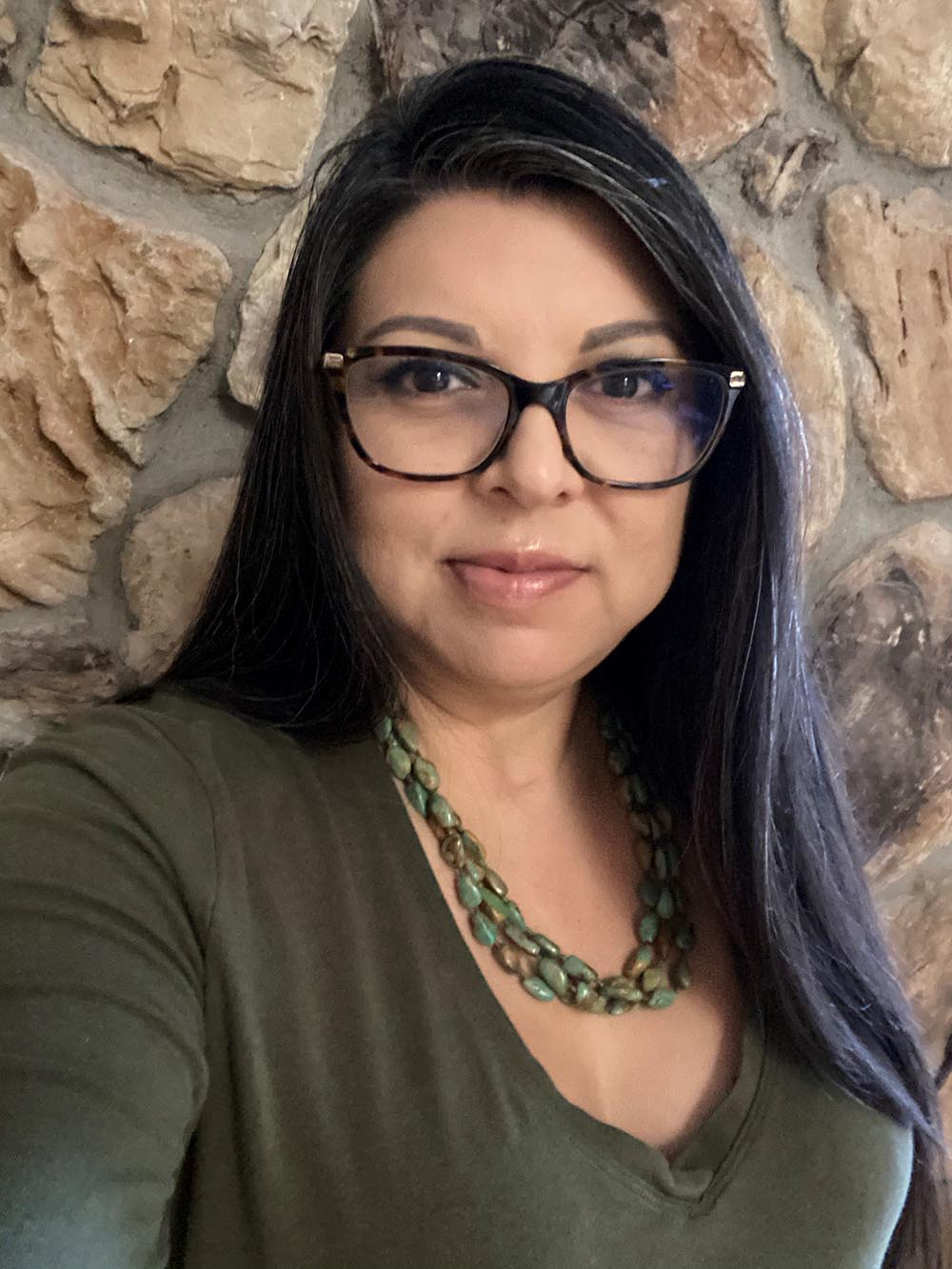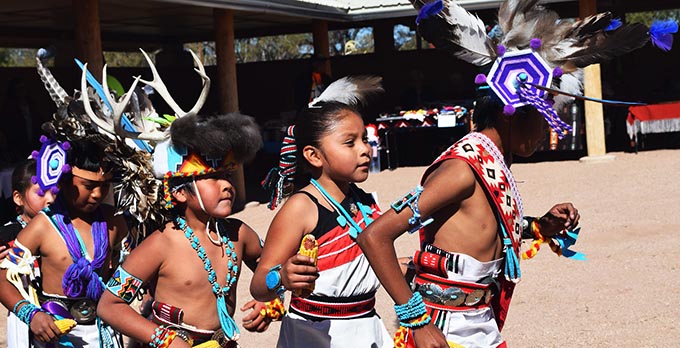Two UNM Department of Psychiatry & Behavioral Health staff members are serving as subject matter experts for a new supplement to the national Mental Health First Aid (MHFA) curriculum that specifically focuses on American Indians.
Teresa Gomez and Jennifer Nanez, both based in the Division of Community Behavioral Health, have worked with tribal communities for decades. Last summer, the MHFA curriculum development team invited them to become subject matter experts for the first Youth Mental Health First Aid Tribal Communities and Indigenous Peoples Insert.
The Mental Health First Aid model trains teachers, first responders, neighbors, family and friends to identify and respond to signs of mental illness and substance use disorder.
“These adaptations include activities that acknowledge and honor cultural practices that are consistent among tribal and Indigenous communities,” Gomez says. “They also include activities and discussions that build understanding, readiness and appropriateness of discussing mental health-related topics and activities that encourage and incorporate application of Youth Mental Health First Aid skills to community, family and self.”

Representation matters. This is an important step in making Mental Health First Aid relevant and more effective for our communities
Nanez notes one of the reasons they were happy to help: “Representation matters. This is an important step in making Mental Health First Aid relevant and more effective for our communities.”
The story of this cultural adaption starts five years ago, when Gomez and Nanez identified MHFA as a practice that might have real impact in the communities they serve.
Gomez was already the program manager for Honoring Native Life, the state’s Clearinghouse for Native American Suicide Prevention. At the time, Nanez worked for the Albuquerque Area Office of the Indian Health Service.
Both conducted community outreach and tribal behavioral health capacity support. “We thought Mental Health First Aid would be particularly useful, because it is so community focused, common sense and easy to understand,” Nanez says.
Gomez agrees. “It prepares all types of community members with the tools to recognize and respond to signs and symptoms of mental health concerns,” she says. “It’s like CPR for mental health.”
This practical approach seemed ideal for addressing the greater prevalence of mental and behavioral health challenges in American Indian and Alaskan Native communities. But to be truly effective, the curriculum needed to recognize historical and intergenerational trauma lack of access and cultural considerations, such as the resilience of Native people.
Gomez, Nanez and Suzanne Pearlman, a national trainer, led a team to address this gap. With IHS funding and permission from the National Council, they adapted the full adult curriculum and piloted it with hundreds of participants in communities around the country. Caroline Bonham, MD, associate professor of Psychiatry & Behavioral Sciences, served as the project’s principal investigator.
The team started with the American Indian and Alaskan Native cultural adaptation to the adult MHFA curriculum, using concepts taken from the Canadian First Nations MHFA curriculum. Their goal was to include culturally relevant materials, aspects and perspectives. The process of developing these adaptations included pilot courses, surveys, focus groups and curriculum reviews held across tribal communities nationwide.
Flash forward to last summer, when the MHFA USA’s curriculum development team reached out about creating the culturally relevant youth insert. Slated to launch in this month, it will allow American Indian trainers, and individuals who train in tribal communities, to customize and use various photos, graphics and culturally relevant scenarios as tools for more effective and impactful training.
“We were both so happy to be part of this project,” Nanez says. “There are all of these evidence-based practices that are pushed out without being piloted or normed for particular communities. We’re pleased to be part of the process for Mental Health First Aid.”
Gomez agrees. “When we piloted the full adapted curriculum in 2017, the response was overwhelmingly positive. People told us Mental Health First Aid had the potential to really impact communities in a positive way.”
Gomez and Nanez hope this is just the first step to the ultimate goal of creating a supplemental curriculum dedicated to American Indian and Indigenous populations.
